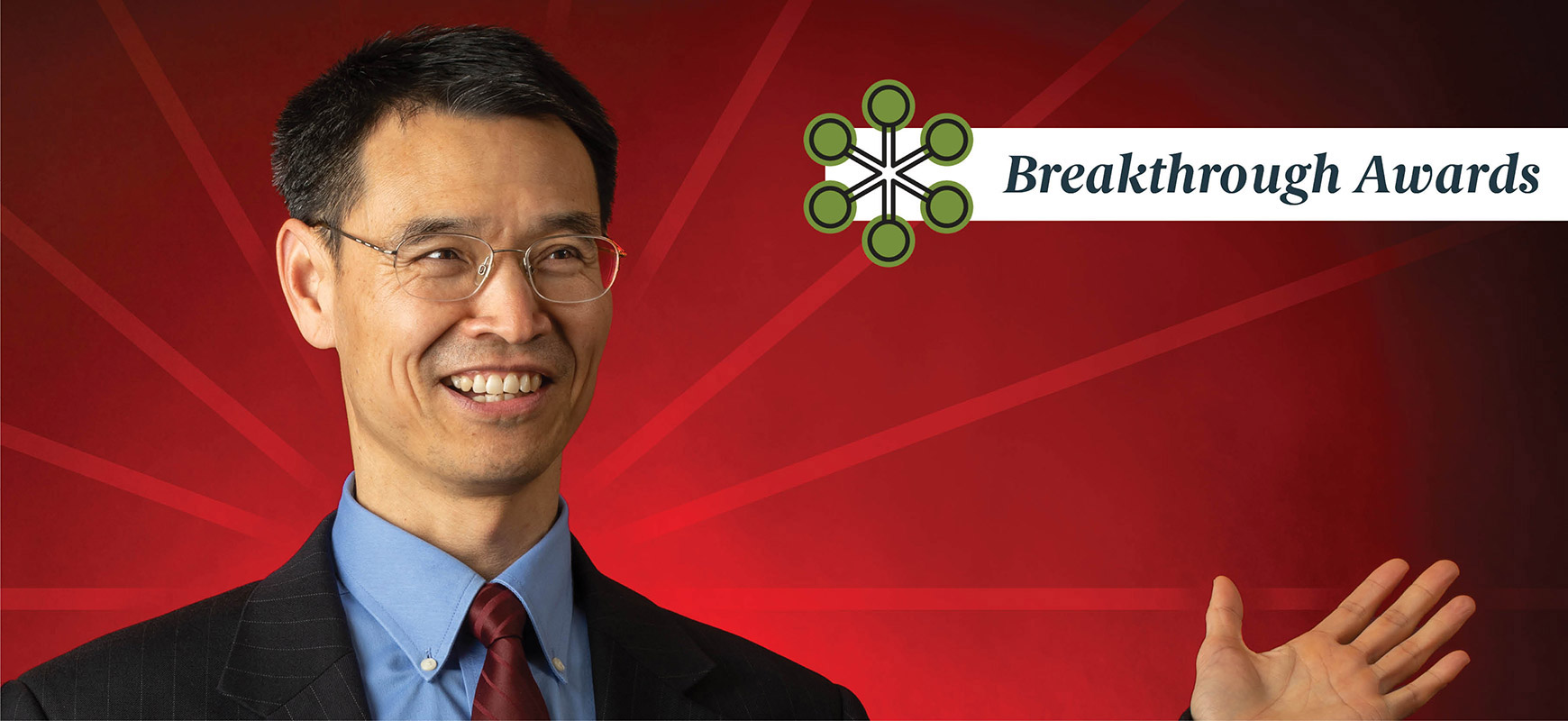
Solving energy’s challenges
Engineering professor hopes to inspire next generation of researchers
Posted on: May 10, 2019; Updated on: May 10, 2019
By Julie Smith Turner, turne292@mailbox.sc.edu
As the lead investigator of a nationally recognized energy research program, it might seem surprising to find Fanglin “Frank” Chen at a local elementary school family night.
He’s there to share the marvels of hydrogen fuel cell technology with parents and students and support public engagement with science both at the expert and non-expert level. Chen’s hope? To inspire them to consider science and engineering as future careers.
As a child, Chen first became fascinated by chemistry and materials. That fascination endures whether he’s working with elementary students or top-tier energy researchers who are drawn to the University of South Carolina for research.
“Our society and civilization are largely defined by the accessibility of energy,” he says. “You cannot create or destroy energy and energy is embedded in the universe. Consequently, energy conversion and storage technologies are critical in order to access energy reliably, cost-effectively, efficiently, sustainably and environmentally friendly.”
Earlier in his career at the College of Engineering and Computing, Chen was instrumental in helping secure a $12.5 million Energy Frontier Research Center grant from the Department of Energy, the largest single competitive grant in the university’s history. The multi-institutional grant led by South Carolina included collaborators from Princeton University, Georgia Tech, N.C. State, University of Connecticut, University of Utah, University of California-Santa Barbara and the Savannah River National Laboratory.
Our society and civilization are largely defined by the accessibility of energy.
Frank Chen, engineering
In addition to that landmark award, Chen has received 49 grants totaling more than $14.4 million from a variety of funding sources since joining the university in 2007. Chen was the university’s first faculty member to receive a grant from the Department of Energy-Nuclear Energy University Program.
One of his proudest accomplishments is the establishment of a world-class solid oxide fuel cell research infrastructure and program — a program that incubated in the basement of the Department of Mechanical Engineering as the Horizon I building was being upfitted. The center has now garnered more than $54 million in external funding and a No. 1 ranking among all the SmartState centers in South Carolina. Chen credits his academic success to the support and encouragement from his academic colleagues, especially Ken Reifsnider, the founding director of the Solid Oxide Fuel Center, who recruited him to the university.
Driven by Chen’s commitment to clean energy research, the university’s foothold as one of the nation’s premier energy research institutions continues to shine. Chen looks forward to the support of curious young South Carolinians who were first energized for science the day they saw hydrogen fuel cell technology in the school cafeteria.